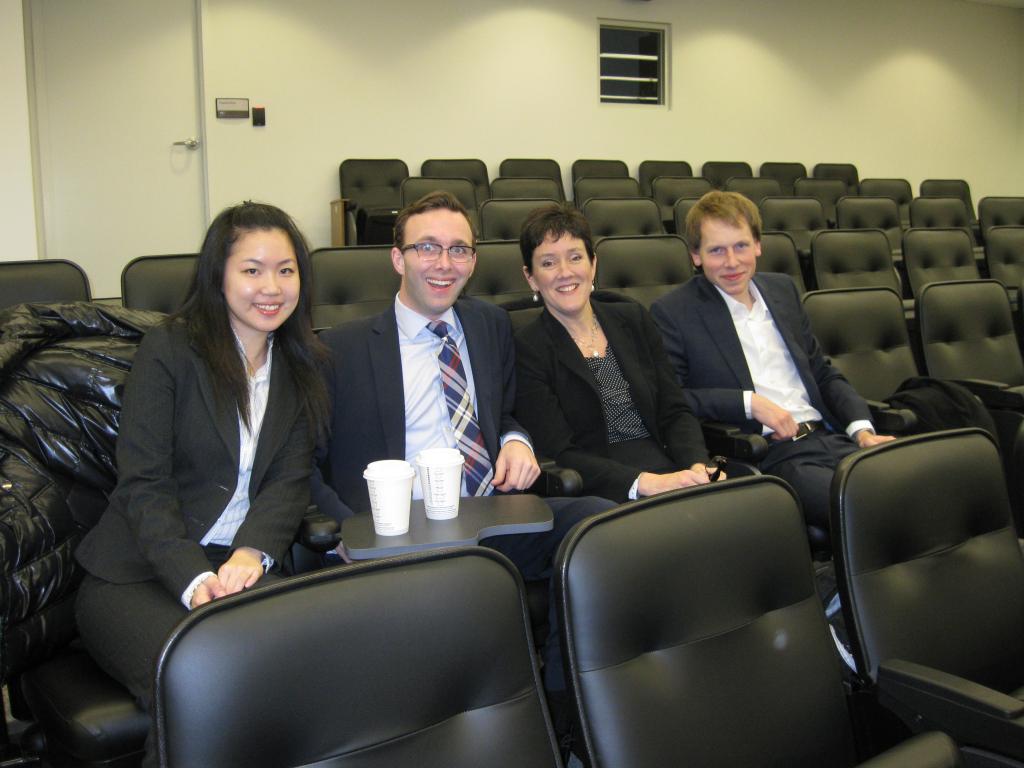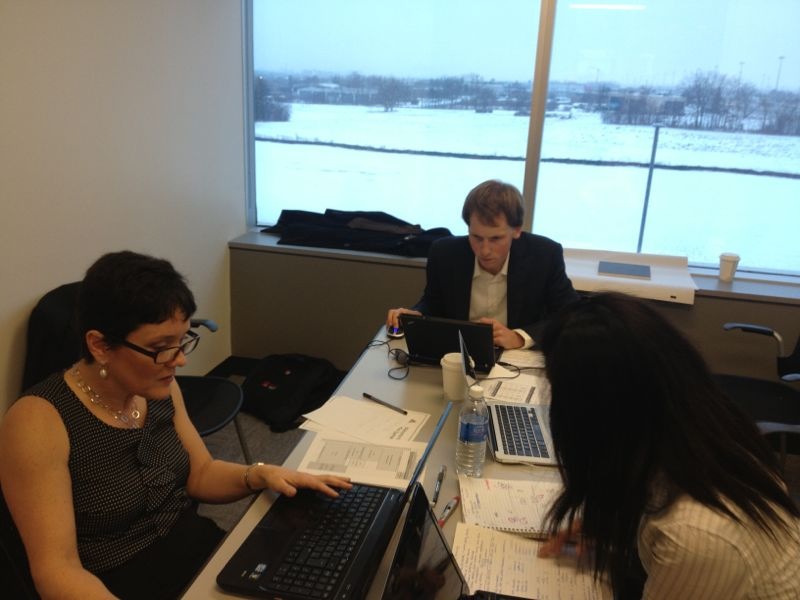by Laura Anderson
I’ve always considered the hour of 4 am to be a time when no one should really be awake. When my kids were young and they woke up during the 4 o’clock hour, I always felt a jolt of outrage – “don’t you know that everyone is supposed to be asleep right now!” That is certainly how I felt when my alarm when off at 4:30 am and I [literally] bolted upright out of bed. “Oh no!” The day had begun and I had to start getting ready for the Strategy Case competition at the MBA Games 2013, Hamilton, ON.
Other weary case competitors joined at the buffet breakfast, loading up on coffee and carbs…each team would need its strength to face a complex task, a wickedly short timeframe and worse, fierce competition from approximately 20 other MBA schools across Canada. The Strategy Case typically has the reputation of the being the “money team” – the team where a school’s best and brightness attempt to wow panels of judges with their brilliant analytical skills; seamless presentations and most importantly, advice for a company that will allow it to solve whatever problem the case itself describes.
The slightly old-fashioned school bus arrived at the front door of the hotel to drive us to McMaster’s Degroote School of Business’s new building – from an out of town perspective, we were in the middle of nowhere on a stretch of highway outside Hamilton. One by one each team was provided with a package of materials that we had just 2.5 hours to analyze. As a woman, I was certainly in the minority of participants. Although many teams had more men than women (some were all men), not a single team had more women than men – our team was no different. Our team had 2 of each: myself, a full-time MBA student was joined by Geordan Hankinson (MBA full-time), Winnie So (MOT MBA part-time) and Lucas Mitchell (a full-time MBA student who had finished the program but not yet graduated). As a group, we work together very effectively, without conflict or anger, arriving at decisions almost without effort. This, we thought, was a winning team. We would surely at least make it to the finals.
The case we analyzed was one that asked a slightly vague “how do we do better?” kind of question. With the 2.5 hour time limit on our minds, by the time we finished reading the case itself, we had to quickly arrive at a direction and run with it. The group settled on a logistics and streamlining approach and set to work on our presentation.
The difference between practice case competitions that might happen within our program and the MBA Games competition was clearly the volume of adrenaline pumping. Each of us paced the halls as we prepared to present, silently mouthing our speeches, perhaps praying or trying anything to calm ourselves down. In the end, the presentation went smoothly – no major slipups or missteps.
Unfortunately, our best efforts were not enough to move us to the next round. Ten out the 20 teams were eliminated in the first round and we were among them. No finals, no glory, no fame. But each of us felt proud to have given our best effort and in the end, that’s all each of can do. If each of us were to asked the question “was it worth getting up at 4:30 am?”, the answer would surely be “absolutely.”

